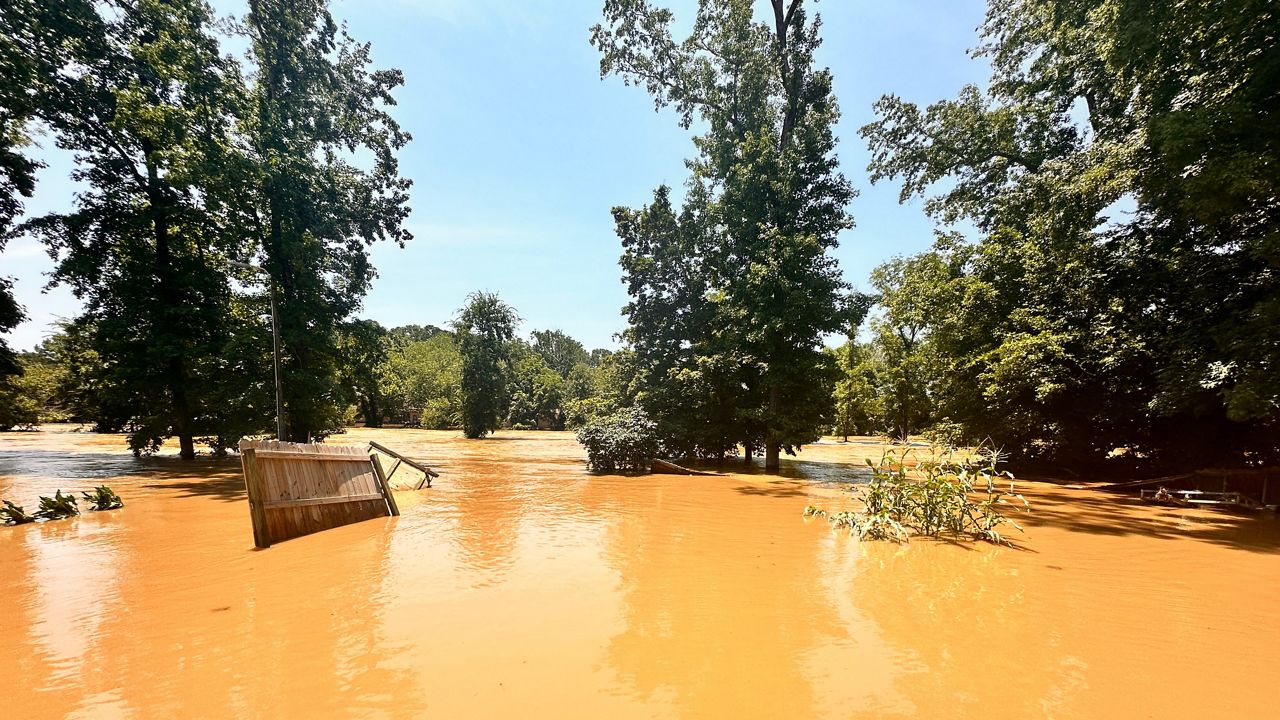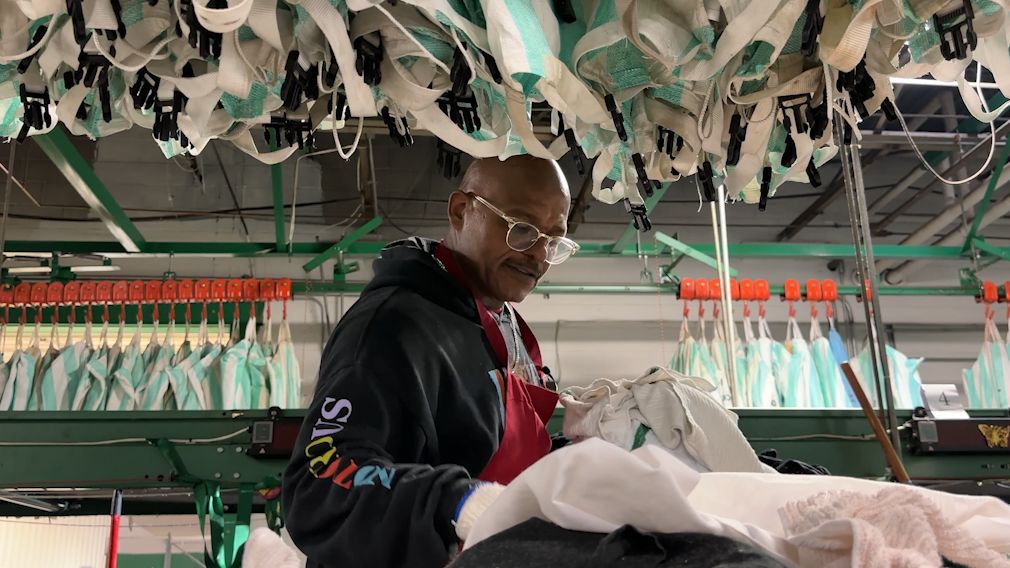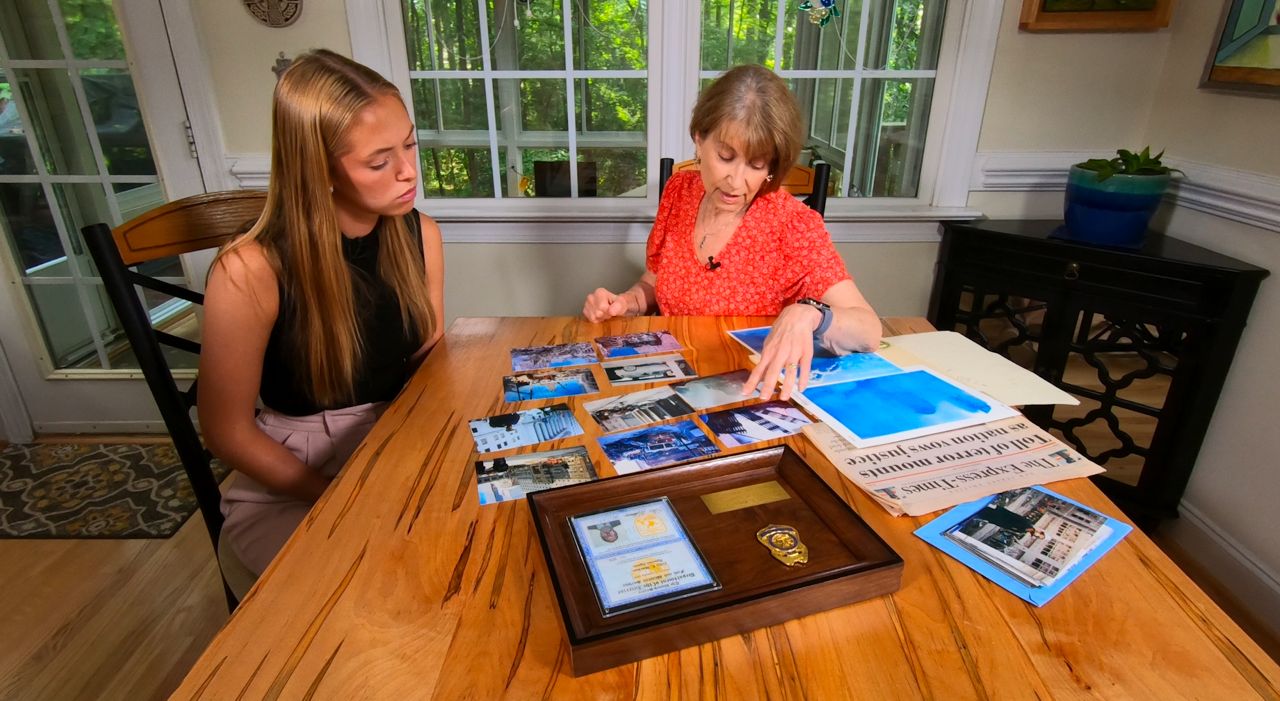BEAUFORT, N.C. — In December 2018, a minke whale, which is relatively rare in North Carolina, washed up on the shore of Cape Lookout. Even after doing tests, scientists still aren't sure what the cause of death was.
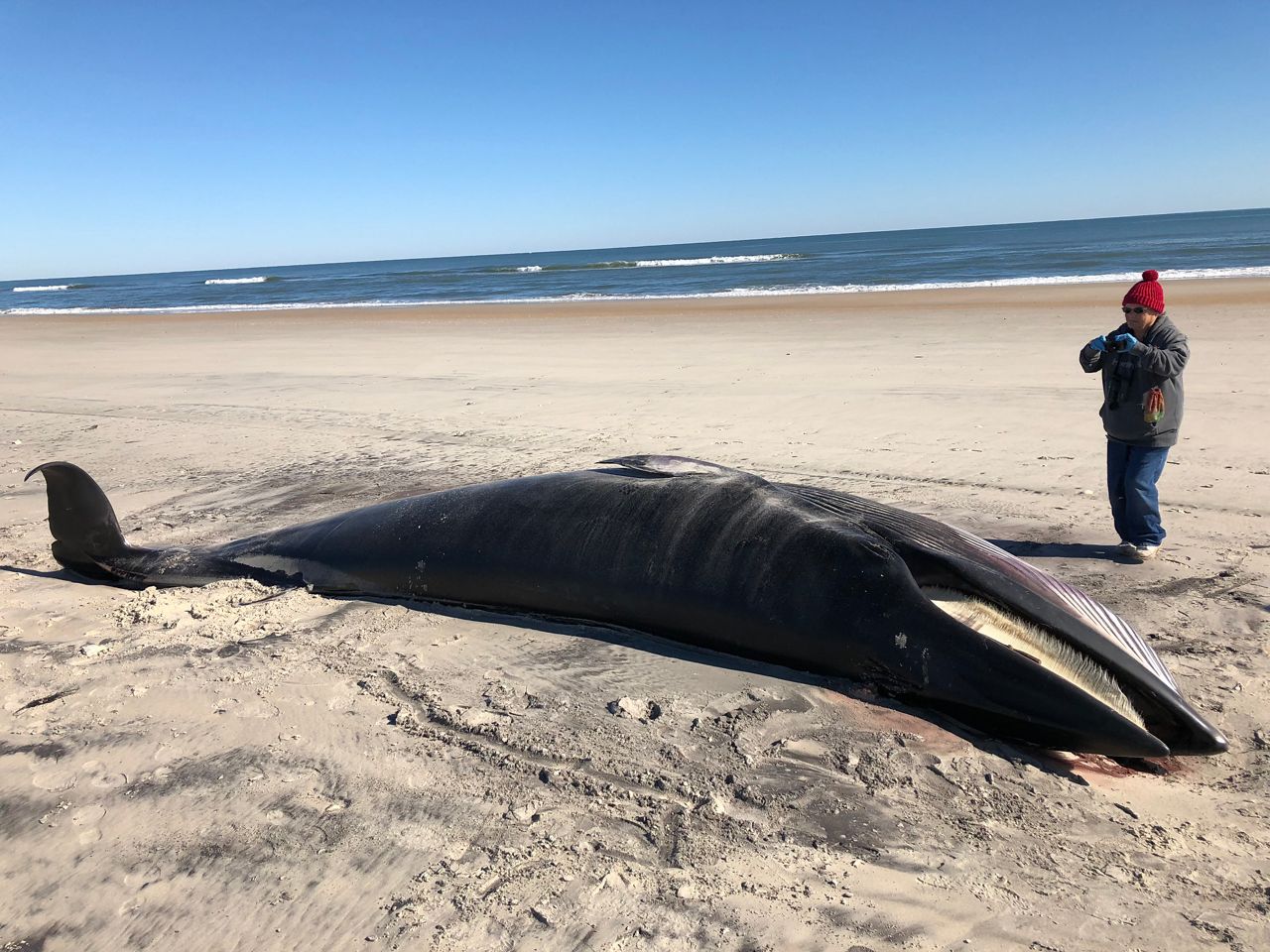
The whale was 20 feet long, and by far the biggest to wash up on our shores. Because of this, scientists decided to bury it so the skeleton could be put back together.
Now, two years later, they have uncovered the bones to begin the repair and reassembly process.
Keith Rittmaster, a natural science curator for the North Carolina Maritime Museum, says one of his jobs is to preserve the minke whale skeleton.
First, he brushes off the dirt. Then he soaks the bones in a mixture of dish soap, ammonia, and water to get the grease off.
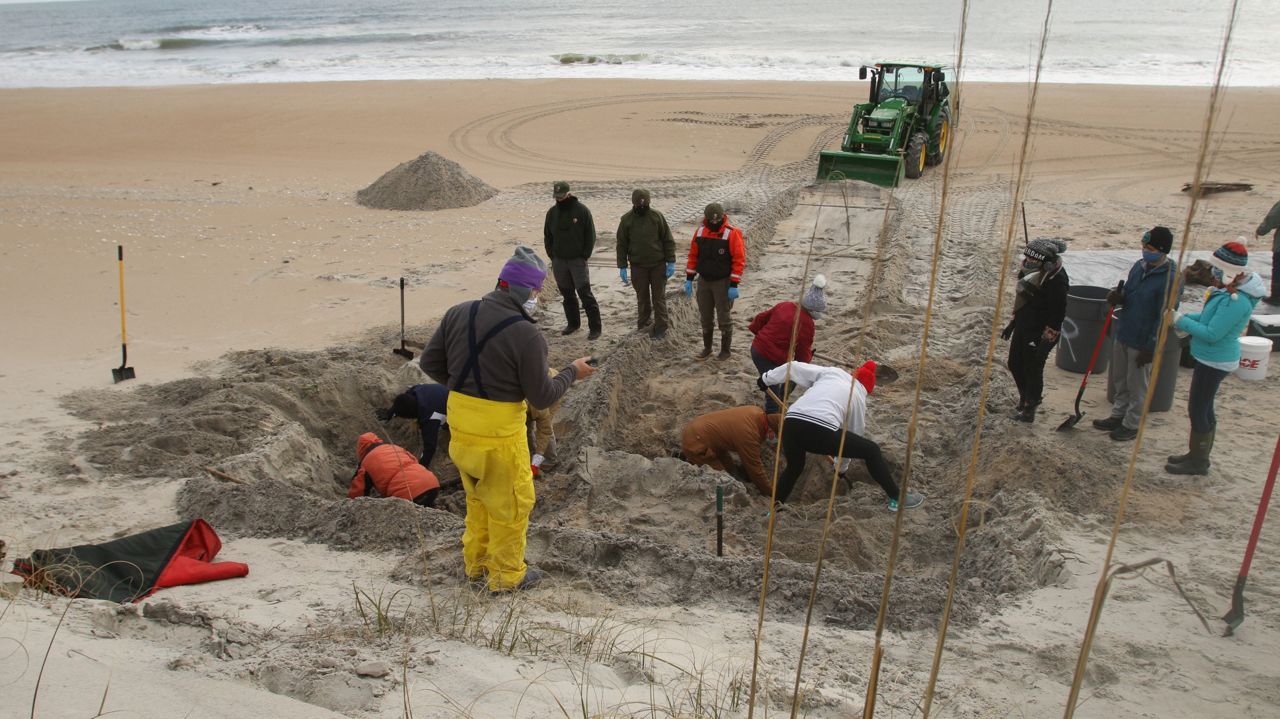
The whale was finally uncovered in February. That's when Rittmaster began the process of cleaning the bones at the Bonehenge Whale Center in Beaufort. It's definitely a long term project and could take up to three more years to finish.
“We have incredible whale diversity, but no one visiting the universities or the museums would have any clue. I would like that to be represented in a very public way for the students, for the general public, for everybody,” Rittmaster says.
Once all the bones are cleaned, they will lay them out to weigh and repair. Then the process of putting the skeleton back together begins.
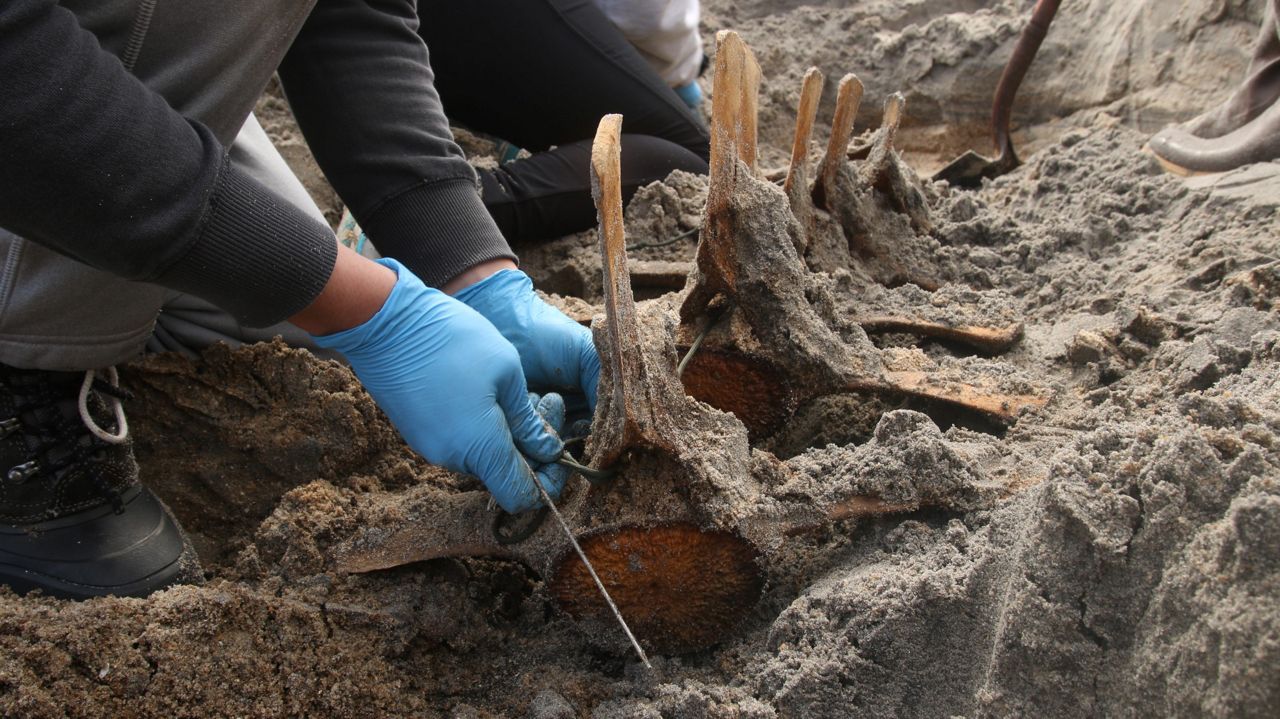
“I'm hoping that we can re-articulate the bones, assemble the skeleton, in a lifelike posture,” Rittmaster explains. “Not just straight and symmetrical, but to emulate life. A little bit of kick, a little bit of turn, a little bit of arch.”
Rittmaster once had a student ask him if it's depressing being around death all the time. He says, as a surfer and a sailor, he's always loved the ocean.
“It used to be depressing... but now it's a little better because we are trying to make the best use of them that we possibly can for research, for education, for conservation." he says.
He saw a need in the community that relates to his interests and tried to fill it.
His dream for this minke whale skeleton is to display it at the park headquarters on Harkers Island.







